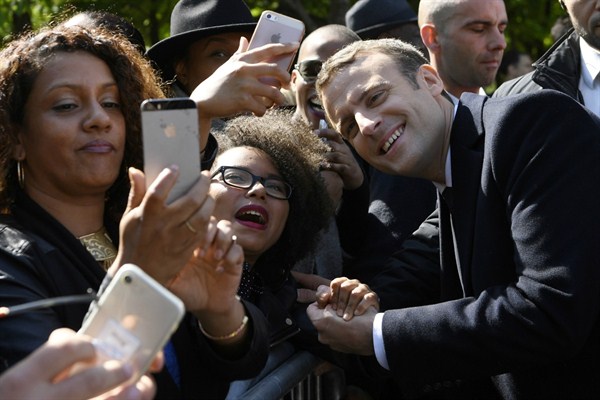Emmanuel Macron’s victory in France’s presidential election capped a surprise-filled campaign that upended the country’s political landscape. This has been most widely noted with regard to France’s established political parties, the Socialist Party on the left and the Republicans on the right, neither of whose candidates made it to the second-round of voting last Sunday.
But the campaign signaled not just a remaking of the party landscape, but also a generational transition in French politics, one that goes beyond Macron’s youth. At 39, he is the youngest elected president of France and among the youngest heads of state of any established democracy in the modern age. On his path to victory, the political neophyte benefited from strokes of good fortune that can best be described as the stars aligning. The same can’t be said for an entire echelon of French political heavyweights who were relegated to irrelevance or worse over the course of the campaign.
This was most clear on the right, where the Republicans’ party primary closed the book once and for all on former President Nicolas Sarkozy’s aspirations for a comeback. Alain Juppe, the last remaining survivor of the Chirac era and a fixture of the political landscape since the 1980s, was also a casualty of the primary, which in all likelihood ended his political career, if not his influence as a powerbroker, at the national level. The surprise winner of the party’s nomination, Francois Fillon, was ushered more ignobly into retirement by the scandals that ultimately doomed his candidacy. His defeat in the first round of voting leaves the Republicans with no clear political platform or chain of command, but a plethora of ambitious figures, all of whom likely see the current power vacuum at the top as a once-in-a-lifetime opportunity. The fight for leadership of the party will be brutal; a split between its hard-right and conservative factions can’t be ruled out, with the moderates likely to defect to Macron.

